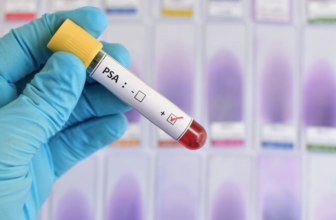
OMAHA, Nebraska – Researchers determined that selective serotonin reuptake inhibitors increase the chances of severe intestinal bleeding.
Ten published studies that surveyed 6,000 patients determined that SSRIs could cause gastrointestinal bleeding. Some SSRIs include Celexa, Paxil, Prozac, and Zoloft. These studies also found that NSAIDs like Advil and Aleve also result in severe gastrointestinal bleeding.
According to Dr. Syed, chief resident at Creighton University School of Medicine, involving SSRIs and NSAIDs increase the chance of developing gastrointestinal bleeding by 75%.
Usually, the bleeding comes from the interaction between the chemicals in NSAIDs and SSRIs. Dr. Alam described how NSAIDs protect the gastrointestinal tract, while SSRIs inhibit platelet production, preventing blood clotting.
Dr. Alam finishes his statement by reiterating the need for the doctors to describe the risks to the patient before prescribing NSAIDs and SSRIs. If it is no longer necessary, Dr. Alam recommends the doctor remove the patient from NSAIDs as soon as possible.
Dr. Elena Ivanina, a director at Lenox Hill Hospital in New York, said that the SSRIs increase stomach acidity, increasing the risk for gastrointestinal bleeding. Ivanina reiterates the need for doctors to exercise caution when prescribing NSAIDs, especially when combining them with SSRIs.
The scariest part about gastrointestinal bleeding is that the patient will not know the signs since these kinds of bleeding are hidden from the patient.
According to Ivanina, “some bleeding, however, may be microscopic and not seen”. More precisely, the patient can experience fatigue and shortness of breath as a sign of gastrointestinal bleeding.





